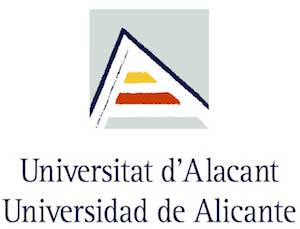The research group of Plant Pathology at the University of Alicante has developed a new process by using fungi to produce biofuel (bioethanol) and fungal biomass for agrobiotech use from shellfish waste. It is a sustainable alternative to agroforestry crops currently used.
The current technology stands out because it uses chitosan as the sole source of nutrients, and produces bioethanol in profitable, sustainable and environmentally friendly manner.
The research group is looking for companies or investors partners interested in acquiring this technology for commercial exploitation.
We have developed a novel process for producing biofuel (bioethanol) and fungal biomass for sustainable crop pest management as by-product. This novel process can use waste from the shellfish industry (or other sources of chitin or chitosan), as an alternative raw material to the use of crops or agroforestry residues.
Our process is a sustainable way to eliminate the pollution caused by shellfish waste. We use nematophagous and entomopathogenic fungi which are able to grow efficiently in anaerobiosis, producing ethanol from the reducing sugars obtained from chitosan, chitin or their derivatives (produced as a result of the degradation of the shellfish industry waste). These nematophagous and entomopathogenic fungi are:
• Pochonia chlamydosporia
• Beauveria bassiana
• Metarhizium anisopliae
Fungi (as conidia and chlamydospores) are at given concentrations that allow rapid and abundant growth without producing self-inhibition.
ADVANTAGES OF THE TECHNOLOGY
• Fungi can grow under high chitosan concentrations (more than 2 mg/ml), which are toxic to other microorganisms conditions, thus reducing culture contamination.
• Fungi use chitosan as a sole source of nutrients.
• Fungi produce a large amount of reducing sugars which are fermented into ethanol.
• Fungi can grow under anaerobic conditions.
• Fungi are able to tolerate the amount of ethanol that they themselves produce in the culture medium (no self-inhibition occurs).
• Fungi encode in their genomes zinc-dependent alcohol dehydrogenases and pyruvate decarboxylases that are required to produce ethanol.
• Fungi produce ethanol and fungal biomass from chitosan rich residues of the shellfish industry, thus reducing pollution they cause.
• The process is sustainable and environmentally friendly.
• It is profitable process.
INNOVATIVE ASPECTS OF THE TECHNOLOGY
We have developed a new procedure for producing biofuel (ethanol) using shellfish industry waste and nematophagous or entomopathogenic fungi. It is a sustainable non-food alternative to crops or agroforestry waste processed, instead of the traditional fermentation processes.
N.A.
This technology is part of the field of Biotechnology . It is a novel process for ethanol and fungal biomass production as by-product using entomopathogenic and nematophagous fungi and a source of chitosan.
Applications:
• Biofuel production (bioethanol) as an alternative to ethanol produced by fermentation processes (using yeast) from plant as raw material.
• Production of fungal biomass for sustainable crop protection.
• Biodegradation and decontamination of shellfish industry waste (the high nitrogen content of this waste leads eutrophication, so that its uncontrolled disposal has serious environmental problems).
Rodriguez Roselló, Iván







